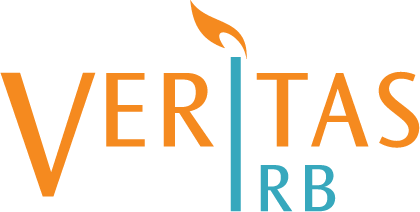Veritas IRB has received three submissions in the past five months of post-marketing observational trials from two research sponsors (the Canadian office of one of the top 20 pharmaceutical companies, and a Canadian-based pharmaceutical company). All three trials had one thing in common; they were old-fashioned seeding trials disguised as bona fide research studies.
As written, the three trials did not constitute legitimate research and Veritas IRB had no other option than to return the submissions to the research sponsors with recommendations for modifications of the trial designs. Not only must studies be designed in a way that will achieve scientifically-valid results, they must also be conceived in a way that does not put the researcher in a situation of conflict of interest. These studies failed to meet these criteria.
Rather than modifying their trial designs, the two research sponsors indicated that they would submit their trial to another IRB forum for review.
“Seeding trials are clinical trials, deceptively portrayed as patient studies, which are used to promote drugs recently approved or under review by the US Food and Drug Administration by encouraging prescribers to use these medications under the guise of participating as an investigator in a clinical trial.”[1]
In Canada, both the TCPS and the Code of Ethical Practices of Innovative Medicines Canada, consider seeding trials to be unacceptable. An accredited IRB operating in Canada must comply with the TCPS in order to maintain its accreditation!
In the absence of any policing by the regulators, “…IRBs likely have the strongest potential to prevent seeding trials, outside of appeals to professionalism and ethical practice.”1
Patients are the biggest losers in a seeding trial. A doctor must provide therapeutic options to his patient based on potential benefits and risks, involve the patient in decisions about their care, and respect their autonomy. When a doctor is incentivized to prescribe only one therapeutic option, he cannot fulfill his duty to his patient.
These cases highlight IRB Forum Shopping by the research sponsor – the two research sponsors felt that they had the option to “try their luck” with another IRB rather than modifying their study design. This would not have been possible had standards been applied in a uniform manner by all private IRBs operating in Canada.
[1] S.D.Krumholz, D.S. Egilman, et al., “STEPS: A Narrative Account of a Gabapentin Seeding Trial” Arch Intern Med. 2011 Jun 27; 171(12): 1100–1107, https://www.ncbi.nlm.nih.gov/pmc/articles/PMC3319750/
About the Authors

Martin Letendre
Martin Letendre is responsible for managing Veritas IRB's business operations and administering the activities of the Veritas IRB Boards. Martin is a member of the Quebec Bar and brings more than a decade of experience in health law and research ethics. His expert knowledge of, and ongoing activity and interest in research ethics have led to the publication of several reports and articles in peer-reviewed journals, and invitations as guest speaker at numerous conferences and scientific meetings. Martin was actively involved in the creation of an on-line tutorial for institutional research ethics boards in Quebec and was a member of Canada's three federal research agencies' Panel on Responsible Conduct of Research.
Janice E. Parente
Janice completed both her PhD and Post-Doctoral Fellowship in Molecular Pharmacology, and proceeded to develop her skills at the Director level within global pharma before founding her first contract research organization (CRO) in 1992. During the ensuing decade, Janice established her credentials as a successful and respected business leader and entrepreneur. In 2002, she sold her company in order to found ethica Clinical Research Inc., instilling in it her values and commitment to the protection of human research participants. This commitment led to ethica becoming the first Canadian entity and the first CRO in the world to earn full accreditation of its Human Research Protection Program (HRPP) in 2006. Janice's leadership and entrepreneurship have been recognized through numerous awards and nominations such as the prestigious Ernst & Young and Bank of Montreal Entrepreneur of the Year Awards and PROFIT Magazine's PROFIT W100 ranking of Canada's Top Women Entrepreneurs.


